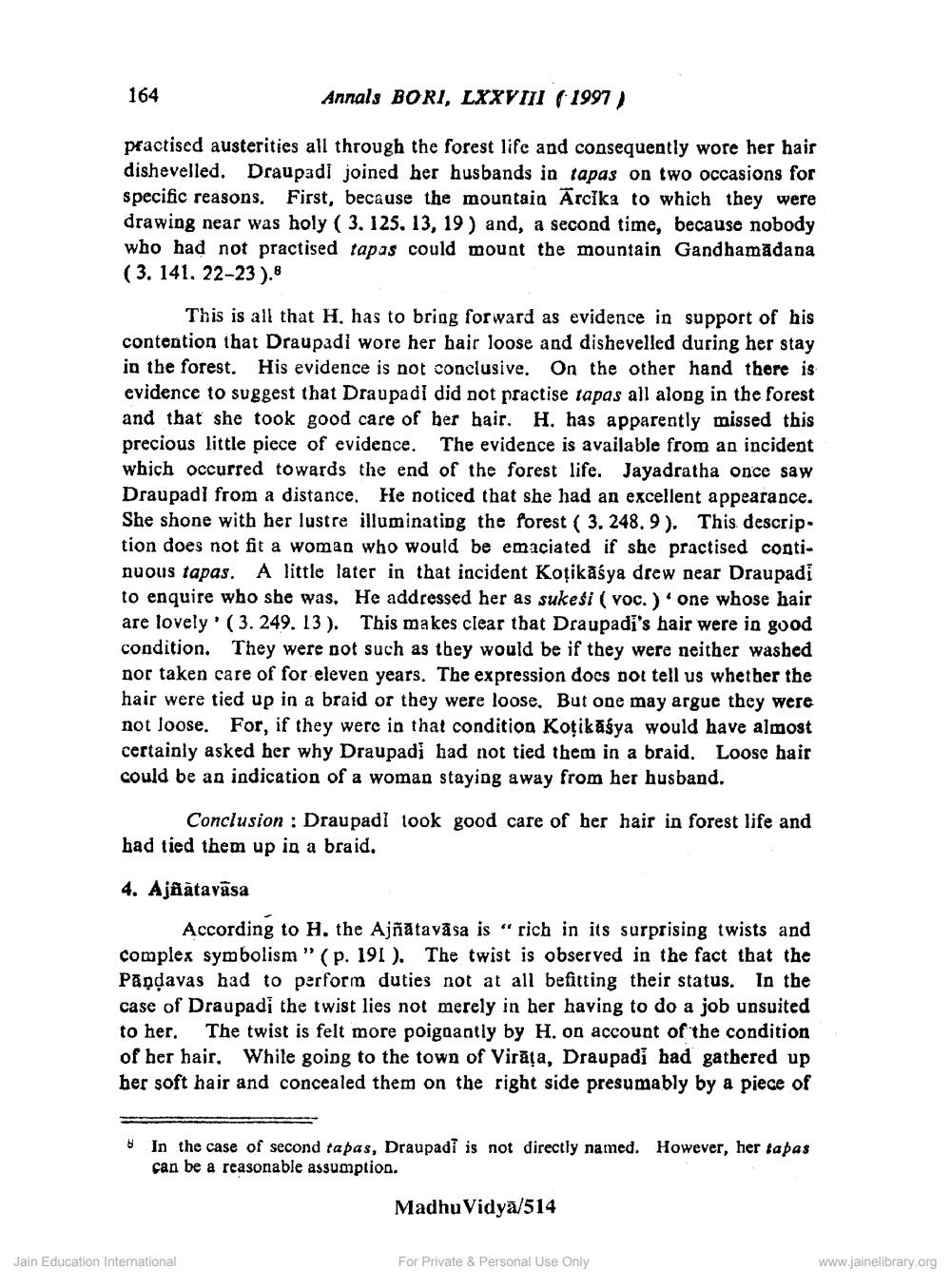________________
Annals BORI, LXXVIII (1997)
practised austerities all through the forest life and consequently wore her hair dishevelled. Draupadl joined her husbands in tapas on two occasions for specific reasons. First, because the mountain Arcika to which they were drawing near was holy ( 3. 125. 13, 19) and, a second time, because nobody who had not practised tapas could mount the mountain Gandhamadana (3. 141. 22-23).8
164
This is all that H. has to bring forward as evidence in support of his contention that Draupadi wore her hair loose and dishevelled during her stay in the forest. His evidence is not conclusive. On the other hand there is evidence to suggest that Draupadi did not practise tapas all along in the forest and that she took good care of her hair. H. has apparently missed this precious little piece of evidence. The evidence is available from an incident which occurred towards the end of the forest life. Jayadratha once saw Draupadi from a distance. He noticed that she had an excellent appearance. She shone with her lustre illuminating the forest ( 3, 248, 9). This descrip. tion does not fit a woman who would be emaciated if she practised continuous tapas. A little later in that incident Kotikäśya drew near Draupadi to enquire who she was. He addressed her as sukesi ( voc. )' one whose hair are lovely' (3. 249. 13). This makes clear that Draupadi's hair were in good condition. They were not such as they would be if they were neither washed nor taken care of for eleven years. The expression does not tell us whether the hair were tied up in a braid or they were loose. But one may argue they were not loose. For, if they were in that condition Kotikasya would have almost certainly asked her why Draupadi had not tied them in a braid. Loose hair could be an indication of a woman staying away from her husband.
Conclusion: Draupadi took good care of her hair in forest life and had tied them up in a braid.
4. Ajñātavāsa
According to H. the Ajñātavāsa is "rich in its surprising twists and complex symbolism" (p. 191). The twist is observed in the fact that the Pandavas had to perform duties not at all befitting their status.
case of Draupadi the twist lies not merely in her having to do a job unsuited to her. The twist is felt more poignantly by H. on account of the condition of her hair. While going to the town of Virata, Draupadi had gathered up her soft hair and concealed them on the right side presumably by a piece of
In the case of second tapas, Draupadi is not directly named. However, her tapas can be a reasonable assumption.
Jain Education International
Madhu Vidya/514
For Private & Personal Use Only
www.jainelibrary.org




